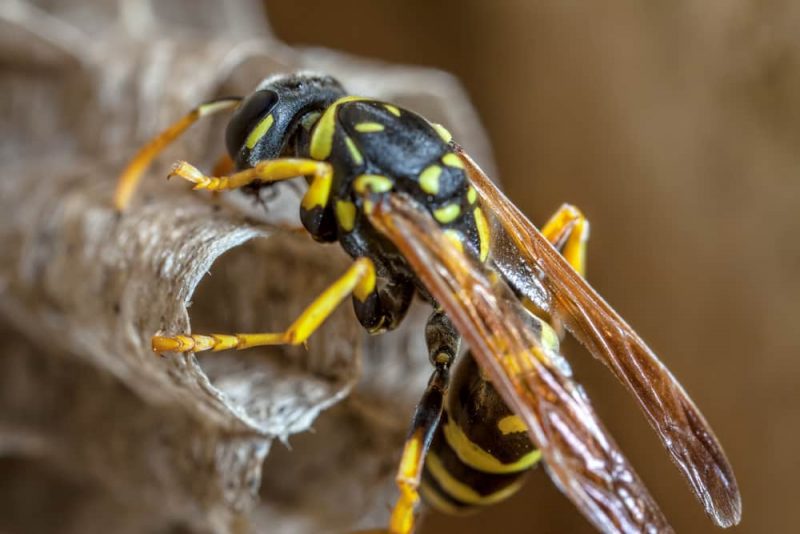Vergo Wasp Nest Removal & Treatment
Vergo are market leaders in wasp pest control and nest removal for both wasps and hornets. We offer a fast, safe, and environmentally friendly approach.
We will aim to get back to you as soon as possible.
We will aim to get back to you as soon as possible.
Vergo provide nationwide wasp pest control & specialist nest removal services.
Wasps and hornets are naturally aggressive insects and are highly protective of their nests and food sources.
When feeling threatened, they emit a pheromone that attracts their friends, so it is not advisable to approach or attempt to remove a wasp or hornets’ nest yourself. This is where Vergo can help!
Vergo are market leaders in wasp pest control and nest removal for both wasps and hornets. We offer a fast, safe, and environmentally friendly approach.
A fully trained technician will attend the property and carry out a detailed inspection before deciding on a correct approach to treat or remove the nest.
We offer both residential and commercial wasp treatment and removal services. Our wasp and hornet technicians cover the whole of the UK, find Vergo pest control services near you.
Wasps and hornets like dark and warm spaces; the hotter the area, the quicker they can build their nests and breed. Such as roof eaves, loft spaces, summer houses, wall cavities.
Book a Vergo wasp exterminator today to prevent any potential health hazards within your home or business.
Our qualified team of technicians are all professionally trained and certified to be able to provide you with solutions that will solve your wasp problem as quickly and efficiently as possible. Vergo is a certified BPCA member, offering the British Standard for Pest Management.
A wasp problem can pose a significant risks to a business, particularly those in the hospitality & service industry, such as cafes, restaurants, pubs, and outdoor dining venues. The risks associated with bed bugs include:
Overall, wasps can significantly impact a business’s reputation and therefore customer referrals. Businesses need to take proactive measures to prevent infestations and address them promptly if they occur.
Watch our short video to discover some interesting facts about wasps.
Wasps and hornets are serious pests and are known to sting when disturbed or trapped, which for people who are allergic to stings can cause potentially fatal anaphylactic shock.
Wasp venom contains a cocktail of toxins, some of which can cause Kounis syndrome, where the blood vessels are constricted leading to a heart attack.
Wasps release an alarm pheromone when stinging you, so if you are near the nest, swarms of wasps will react to the pheromone and can also attack you.
The telltale sign for the presence of a wasp nest is a high level of activity heading to a similar location at your property, normally this activity increases during warm sunny days.
Typical locations you see them flying into are cracks between tiles, or in the eaves.
Wasps nests only need to be removed if they are causing a problem and pose a risk to human health.
The main way to differentiate between a wasp and a bee is by their shape. Bees have stout, hairy bodies with flat rear legs whereas wasps have slender bodies with a narrow waist and appear smooth and shiny with a much more radiant yellow colour.
Their nests are also different bee nests consist of exposed combs made from wax, while wasp nests are made from paper and are generally ball-shaped with an outer paper covering.
As pest controllers, we understand the risks associated with wasp stings. When treating nests we put ourselves very much in line for wasps to attack us. This is why at Vergo we take every precaution to protect our technicians, by ensuring they have the correct PPE to carry out the treatment that minimises any risk.
Where possible our technicians will treat wasp nests from the ground, using extendable poles that enable them to deploy the insecticide or cryogenics (use of ultra-low temperatures) into the nest.
Working at height while treating a wasp nest brings with it another layer of complexity and risk for our team, so where required due to access problems we may need the use of mobile access equipment to ensure that we can safely treat the nest.
Wasps nests go through cycles, usually lasting between 3-4 months.
